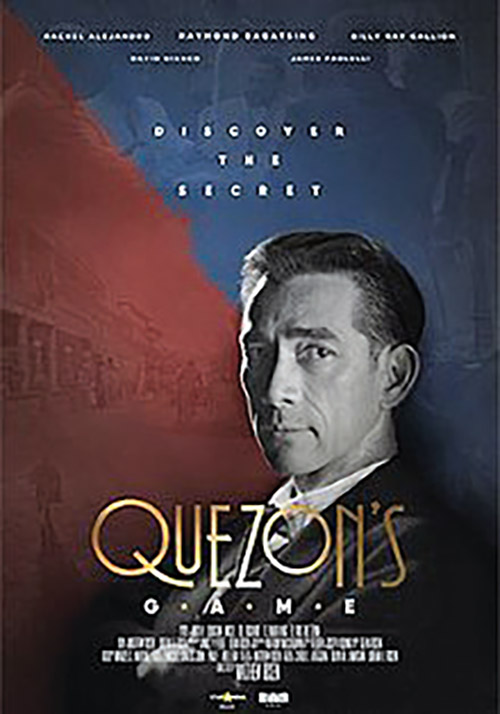
In 1938, the young president of the Philippines, Manuel L. Quezon, at great risk to himself and his family and in the face of often insurmountable obstacles, obtained 1,200 transit visas for Jews in Germany and Austria about to be taken to concentration and death camps. His original determination to obtain 10,000 visas was thwarted by the Japanese invasion of the Philippines in 1941-2 and Quezon’s own untimely death from tuberculosis in 1944.
At a recent Bergenfield showing of the film “Quezon’s Game: The Movie,” about his life, the audience consisted of a mere 40 individuals, 36 of whom were of Philippine descent, and four Orthodox Jews from Teaneck. At the conclusion of the film, the Jews in the audience turned to the Philippine moviegoers to ask why they had come. The reply was that obviously this man was one of their national heroes and they came out of respect to his memory. They shared that there are many descendents of the recipients of these visas still in the Philippines.
When asked where they reside in the U.S., one couple responded that they live in Morristown, a good trek to the movie. The second couple came from three hours away in the Northern Catskills. When asked why they had traveled so far, they shared that they had checked the locations where the film was showing and found that there were very few theaters across the country showing the film, but they were determined to see it.
The question is why Quezon’s name is not up there with those of Raoul Wallenberg, Chiune Sugihara and Oscar Schindler as non-Jewish heroes of the Holocaust. In these times of increasing anti-Jewish and anti-Israel vitriol from many segments of society, wouldn’t it be comforting to learn about individuals who rose up courageously in our defense?
In addition to the heroics of the main character and his wife, the film depicts individuals who worked alongside Quezon on his mission of mercy. Alex Frieder, a Jewish-American living in the Philippines to oversee his cigar company was the initiator of the mission. Originally from Cincinnati, he was in touch with the underground in Germany and tipped off to the planned deportation of Jews. He brought the plight of these souls to Quezon. Then there was a young Dwight D. Eisenhower, then a military attache in the Philippines. In contrast to several other U.S. officials stationed in the Philippines who openly expressed their anti-Jewish sentiment, Eisenhower was willing to assist Quezon in this overwhelming attempt at rescue.
Two very poignant scenes stood out in the film. One was when Frieder, holding a list of 10,000 names of individuals he had hoped to rescue, was notified that only a fraction could be saved. As he watched Quezon cross off names from the list, he was visibly shaken to the core, as each stroke of the pen indicated certain death. The second occurred twice in the film, at the outset and at the end. Reminiscent of “Schindler’s List,” Quezon turned to his wife, Aurora, and beseechingly asked, “Could I have done more?”
“Quezon’s Game” recently premiered in London to coincide with Holocaust Remembrance Day. Following the showing, a concert featuring Shulem Lemmer was held. The film itself concludes with a soulful musical piece sung by Lemmer.
“Quezon’s Game” and films like it that depict “righteous among the nations’’ should be a top priority in our viewing selections. We and our children should be informed of the non-Jewish heroes who stood up in our defense. These individuals should be appreciated and revered. Movie theaters in communities like ours should be oversubscribed with youngsters and adults paying homage to these heroes, of whom there were historically far too few. “Quezon’s Game” is a must-see.
Check online for film’s availability.
By Pearl Markovitz













